I had a quick phone call with Janet Voûte last week. I caught her just as she was going into the launch of the 2016 Access to Nutrition Index session at Davos. I guess that's the closest I'll probably get to a WEF session at Davos like ever.
 |
| OK, so I wasn't in Davos, I stayed warm. |
I was super-grateful that Janet spared me some time as she is one of the most passionate and inspiring speakers around on the making-the-world-better circuit today. She is also really REALLY busy. Janet shared some insights with me that truly helped me understand the essence of better-world-through-business. Janet Voûte is Nestlé's VP of Global Public Affairs. Want to know what that means? Read on....
But first, a quick reminder of Nestlé's claim to fame: Creating Shared Value (CSV). No, I'm not going to give you the lecture. You probably know what Shared Value is all about by now. But if you don't, stop, grab a cup of Nescafé (see that? PC), and read all about it in Nestlé's last report.
Oops, the full report is 284 pages short. You night need more than one cup. The Summary Report is only ONLY 53 pages and that works well too. The report is entitled "Nestlé in Society: Creating Shared Value and meeting our commitments". That bit about commitments is no less important than the CSV bit. Nestlé has 38 commitments to 2020 that support the CSV direction. Check them out here on Nestlé's CSV website. Against each commitment is a statement of progress and a link to dive deeper. The scale, scope and breadth of these commitments is formidable, especially as they are not only about reducing GHG emissions, water use and salt, fat and sugar in products ... they are mainly about changing the way consumers consume or the way farmers farm or the way young people get a foot on the career ladder. What's striking about Nestlé's commitments is that most of them really go to the heart of the role of business in society. Which, in a nutshell, is what CSV is all about. It's better-world-through-business .. where business addresses specific societal / social needs in a way that creates value both for the business and for society. Darn. I wasn't going to lecture.
Nestlé's CSV focus is very well defined......
Nestlé's CSV focus is very well defined......
.... and Nestlé has been very consistent over the years in driving its prime agendas forward. But I promised to tell you what VP Global Public Affairs means. Perhaps it's better to let Janet explain:
What does Global Public Affairs mean on a day-to-day basis?
Janet: What I spend my days on is our CSV agenda and all the many aspects of that. I have the privilege to sit on the Nestlé In Society board – that’s an internal management board of our entire societal agenda, chaired by our CEO, which meets three or four times a year. I also spend time as Chair of the Nestlé CSV Council which is an external advisory group made up of 12 thought-leaders from around the world in strategy and sustainability matters such as nutrition, water, agriculture and rural development. I also organize our CSV Forum and stakeholder convenings. Obviously, around this time of year, I am also involved in the development of our report suite and effective communications of CSV. I have a particular background in the health field so I also work on our Nutrition Health and Wellness strategy.
Yes, you did read that right. Stakeholder convenings. Somehow that sounds much more considered than stakeholder meetings or stakeholder dialogue, though I suppose it's pretty much that. However, Nestlé does this quite spectacularly. But before we convene about convenings, you first need to know about the CSV Global Forum. This is an annual public debate held in different places around the globe, bringing together around 200 experts for a full day to discuss the role of business in society and key topical themes. It's live-streamed and prolifically tweeted. You can read the summary of the 2014 event here. (Don't worry, no more than one cup). The CSV Global Forum provides inspiration and direction for the stakeholder convenings.
Please tell me about stakeholder convenings.
Janet: Twice a year, in addition to our public engagement processes, we hold private stakeholder convenings covering the same topics that we discussed in our public stakeholder dialogue events under the CSV Forum. These private convening events for around 60 - 70 people including academics, NGO's and members of the investor community enable an open discussion about what we are doing and what they like and what they don't like. The convenings are held under Chatham House Rules (we just completed one in Washington D.C.) and the conversations are enriching for our business leaders. The last time, our CEO spent nine hours listening and responding. This platform provides authentic insight into what’s expected of us as a company. It also helps our stakeholders gain new insight so I hope it's mutually beneficial. The think-tank SustainAbility helps us structure the process. The output of these discussions feed our materiality assessment. We also publish the recommendations in our CSV report.
The investment in truly understanding what stakeholders are saying in so many different meetings, convenings, gatherings and panels (Nestlé also has a Nestlé Nutrition Council - an independent advisory panel
made up of international nutrition scientists) is a far cry from the online questionnaires or consultant-led interviews with anonymous stakeholders which seems to satisfy many companies. This is real face-time. It's meaningful, impactful and robust as a source of guidance for Nestlé's evolving role in society. One of the tangible outcomes is Nestlé's materiality matrix.
Does all this chatter really have an impact on the way Nestlé does things?
Janet: Oh yes! It really does. For example, our use of the term zero in our water program may well have come from our interaction with John Elkington on the Nestlé CSV Council who made that term synonymous with the sustainable development agenda in his book The Zeronauts. We have zero water dairy factories. While we might have gotten to this ourselves, it’s not a given that we would have developed our ambition to reach this far. Similarly, for example, Sasha Zehnder, the Scientific Director of the Alberta Water Research Institute in Edmonton, guides us in the fact that water is both an emotional and a rational discussion, and all of our nutrition experts on the CSV Council encourage us to engage more with stakeholders and review our commitments. Our CEO listens, we listen, and this changes how we evolve. We are now planning our seventh CSV Forum to take place in Abidjan in the Ivory Coast in June this year. This Forum will continue to look at the changing role of business in society especially in the light of the new Sustainable Development Goals.
Janet: Oh yes! It really does. For example, our use of the term zero in our water program may well have come from our interaction with John Elkington on the Nestlé CSV Council who made that term synonymous with the sustainable development agenda in his book The Zeronauts. We have zero water dairy factories. While we might have gotten to this ourselves, it’s not a given that we would have developed our ambition to reach this far. Similarly, for example, Sasha Zehnder, the Scientific Director of the Alberta Water Research Institute in Edmonton, guides us in the fact that water is both an emotional and a rational discussion, and all of our nutrition experts on the CSV Council encourage us to engage more with stakeholders and review our commitments. Our CEO listens, we listen, and this changes how we evolve. We are now planning our seventh CSV Forum to take place in Abidjan in the Ivory Coast in June this year. This Forum will continue to look at the changing role of business in society especially in the light of the new Sustainable Development Goals.
 |
| Cero means Zero in Mexico. Just sayin'.... |
What’s hot on the CSV agenda today?
Janet: The CSV agenda is always dynamic. Nutrition is always on the agenda with both the overweight and underweight double burden of malnutrition. That will always be part of Nestlé corporate strategy. Also, clearly the water and environmental sustainability agendas will continue to be central. And all the work with farmers and rural development. Our Chairman is here at Davos with a new 2030 Water Resources Group which he helped establish. This area will require focus for years to come.
What’s new is perhaps the increasing interest of investors beyond SRI and ESG investors. I am seeing new frontiers as the conversation starts to penetrate into the mainstream. Mainstream investors are starting to understand that it’s about why the business does well – CSV as essential to business success through improved access to capital, access to labor, license to operate and brand building. The other topic area that's hot right now is the consumer/millennial side of the equation.
Over and under nutrition is Nestlé’s top material issue. Where do you believe you have made the most significant progress in these areas in the past few years?
Janet: In terms of the double burden of malnutrition, we are all massively concerned with increasing rates of obesity, and recognize that national health systems cannot manage this. That’s a joint, mutual concern while at the same time you still have populations that are undernourished, malnourished and micro-nutrient deficient. Nestlé has done many things in this area. We have done some of the classic things like reducing salt, fat and sugar and added whole grains and vegetables, but we have also innovated in a series of areas like portion guidance. We are starting to tell consumers in simpler terms how much is the right amount to eat to help them make better decisions. For example, in the U.S., we have a frozen pizza business and we have portion guidance that shows that a big guy can have two pieces and a kid can have one and you should eat it with salad!
Janet: We are also doing a great deal of research for the future of nutrition to make step changes such as addressing sodium levels to retain taste but dramatically lower sodium content. To further our research, we have two relatively new business areas in the past 5 years: Nestle Health Science and Nestle Skin Health. Going beyond the food and beverage business and investing in the future of nutrition and health is how we are evolving our corporate strategy while staying true to our CSV core. Science looks for nutritional solutions to specific conditions – targeted nutrition and personalized nutrition are the next level - food, health, skin care - it's all linked by the science of nutrition. It’s a big agenda and I am proud of the company for the progress we have made - it’s not over! I am also happy we improved our score to become number 2 in the 2016 Access to Nutrition Index which is a very rigorous benchmark of food and nutrition companies.
 |
| Nestle 2016 ATN rank |
********
It will be a great honor for me personally to host Janet Voûte
at our upcoming Sustainability Reporting Conference in February. Janet is a wealth of experience, knowledge and insight, and has a tangible passion that will energize our audience. Of course, if you haven't booked your place yet, better hurry! You wouldn't want us to run out of space, now, would you? Check with me for a discount (yay!).
elaine cohen, CSR consultant, Sustainability Reporter, HR Professional, Ice Cream Addict. Author of Understanding G4: the Concise Guide to Next Generation Sustainability Reporting AND Sustainability Reporting for SMEs: Competitive Advantage Through Transparency AND CSR for HR: A necessary partnership for advancing responsible business practices . Contact me via Twitter (@elainecohen) or via my business website www.b-yond.biz (Beyond Business Ltd, an inspired CSR consulting and Sustainability Reporting firm). Need help writing your first / next Sustainability Report? Contact elaine: info@b-yond.biz
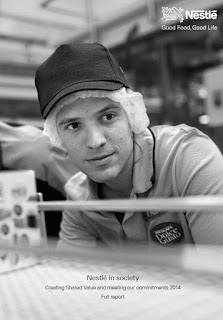








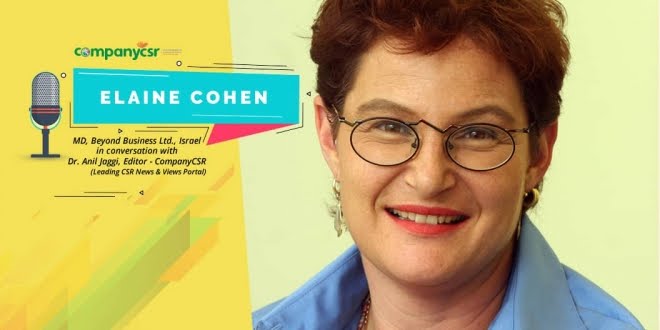
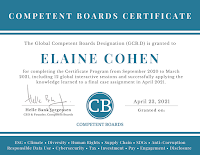


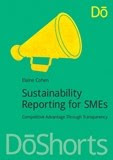
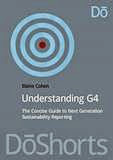
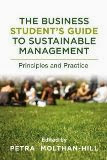
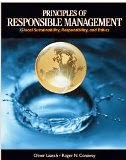
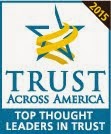










No comments:
Post a Comment